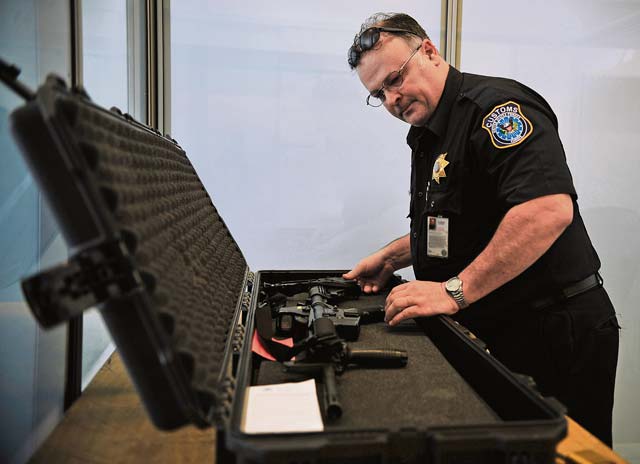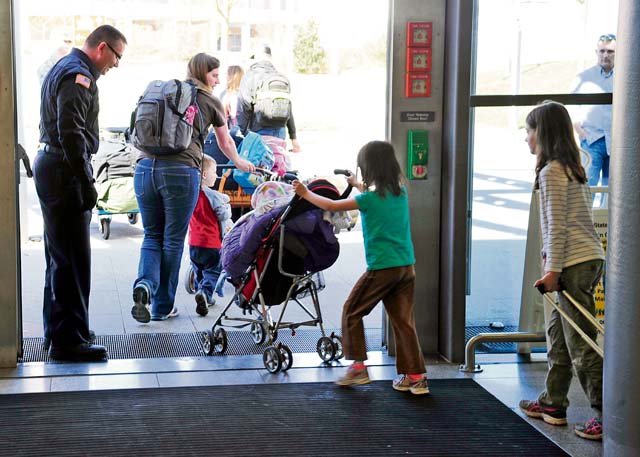
After a long flight to Ramstein, most people focus their minds on getting up to stretch, leaving the aircraft and meeting loved ones at the gate.
However, before leaving the Ramstein Passenger Terminal, each passenger must meet with a U.S. Army Customs Europe representative. After retrieving their luggage, members must answer questions to ensure security and safety and to make declarations.
“At the terminal, we have 24-hour air operations,” said Brian Harris, U.S. Army Customs Europe customs border clearance agent. “Once through immigrations, all passengers and cargo have to go through us. We look for restricted and prohibited items being imported into the European community such as weapons, drugs, food items and excessive amounts of money.”
The mission is impacted by the customs members in many different facets. Whether it’s issuing fuel ration cards or inspecting aircraft food, they check that everything is in excellent condition to ensure the best possible results.
The 16 customs members from the PAX terminal and the customs office, are liaisons for many agencies including German customs and veterinarians caring for passengers’ animals. Because they are the middle-men, their career is vast.
“Our job has a lot of different aspects,” said James Cook, U.S. Army Customs Europe deputy chief inspector. “We issue fuel ration cards, temporary licenses for visiting family members and save military members and their families money on import taxes among many other things.”
They also work with the host nation in regards to a family care plan in the event of a deployment.
“If you’re a single parent and have to deploy and leave your child here with a child care provider, we’ll coordinate that with the host nation so the provider is able to shop and operate your (personally owned vehicle),” Harris said.
When it comes to receiving packages from friends and family in the U.S. or ordering items online, customs members also monitor imports to ensure host nation laws are being followed.
“We’ll select a random post office and schedule a time to go by,” Cook said. “We scan through parcels, and if there isn’t a customs declaration form on the box, we don’t know what is in the box so we’ll flag it. We look at where the box is coming from, and if the contents are supplements, we have to inspect it.”
The customs members are not only tasked with aircraft, post office packages and baggage inspections, they also perform their duties during deployments.
“We support (U.S. Africa Command and U.S. European Command),” Harris said. “We do a preclearance for the military members going back to the U.S. and make sure everything they’re bringing back is up to our standards. Then the aircraft is cleaned to (U.S. Department of Agriculture) standards.”
Whether it’s cargo checks, aircraft kitchen inspections, or ensuring airplane meals are up to USDA standards, the U.S. Army Customs Europe members ensure military members and their families get from point ‘A’ to point ‘B’ in the safest, healthiest and most environmental friendly way possible.



